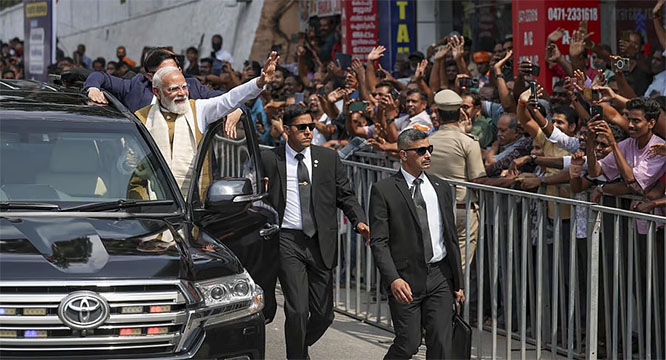
Mangaluru, Nov 28: The New Mangalore Port received the first cruise ship of the current cruise season on Monday.
The cruise ship MS Europa 2 was called at berth number 4. It arrived with 271 passengers and 373 crew members sailing under the flag of Malta. Its carrying capacity is 42,830 gross tonnage and her current draught is reported to be 6.3 metres. Her length overall (LOA) is 224.38 meters and her width is 29.99 meters.
The cruise vessel arrived from Mormugao in Goa and from Mangaluru it sailed to Cochin port.
Officials from New Mangalore Port Authority had made all arrangements to welcome the cruise passengers. In fact, the cruise season commenced after a gap of two years due to Covid-19 pandemic. Arrangements were made for medical screening of passengers, 11 immigration and four customs counters were set up for the purpose.
In addition, six coaches of bus and cars, 15 prepaid taxis, were ready to take the passengers. A meditation centre was also set up by the Department of Ayush and cultural programmes portraying Indian mythology were performed on the occasion.
The passengers visited various tourist points in and around Mangaluru including St Aloysius, Kadri temple, Kudroli Temple, local market, cashew factory, Udupi temple, 1000 Pillar Basadi and mall.
In fact, the last cruise vessel the port received was on February 18, 2020 with 1,800 passengers and 800 crew on board. Later, due to the outbreak of Covid-19 pandemic, the cruise vessels were not allowed to enter the port in March 2020 on the direction of the Government of India. In fact, 22 cruise vessels had called at the port in the year 2017 and 26 vessels during 2018.







Comments
Add new comment